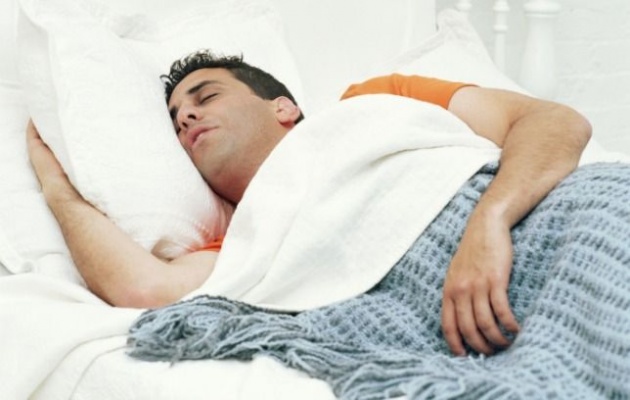The Worst Way to Sleep
Chills in the bedroom may not be a good thing, finds a new Japanese study.
Researchers found that people who slept in a cold room (57 degrees) overnight saw their systolic and diastolic blood pressure rates spike 6 to 8 percent after climbing out of bed in the morning, compared to sleepers who spent the night in a toasty, 76-degree room.

Your blood pressure naturally rises when you wake, explains study coauthor Keigo Saeki, M.D., an epidemiologist at Japan’s Nara Medical University. But when you hop out of bed into a cold room, the blood vessels in your skin constrict and your heart kicks into overdrive to warm you up, Dr. Saeki adds.
That boost in blood pressure lasts at least 2 hours and, over time, it can put a serious strain on your ticker, Dr. Saeki says.
But don't keep your thermostat turned up all night—it's a major money-suck, and the higher temperature may disrupt your sleep, says. Do this instead: Program your home's thermostat to increase the room to 72 degrees a half hour before you plan to rise. If your current thermostat can't manage that, try a programmable option—like Nest's uber-smart thermostat ($250, nest.com). After a few weeks, the Nest will have "learned" enough to both keep you comfortably warm when you're at home and dial back the settings when you're out to cut energy costs.



